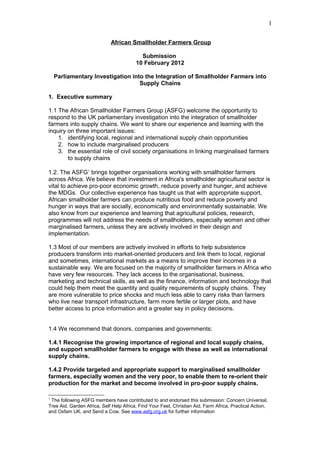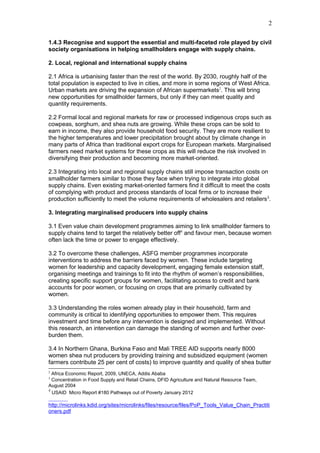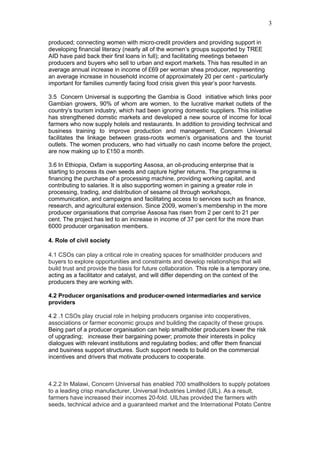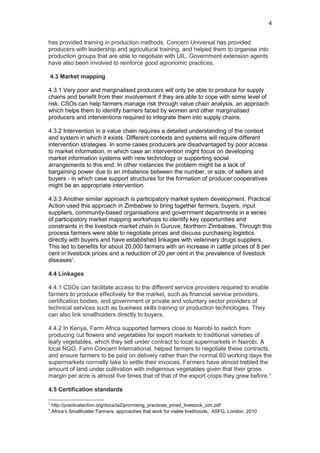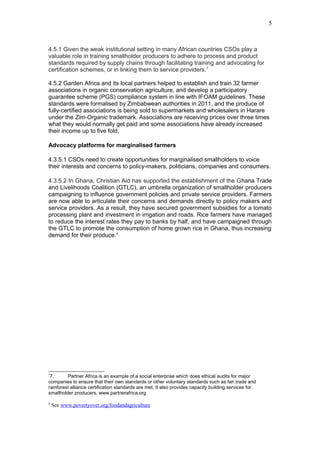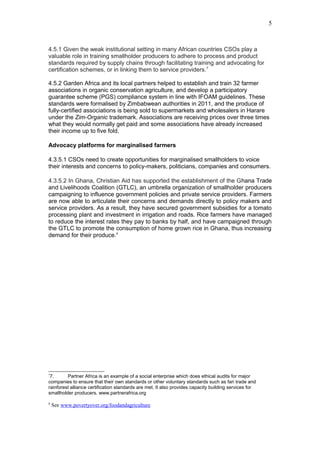The African Smallholder Farmers Group (ASFG) submitted a response to a UK parliamentary investigation on integrating smallholder farmers into supply chains. They shared their experience on identifying supply chain opportunities, including marginalized producers, and the essential role of civil society organizations in linking farmers to supply chains. The ASFG recognizes the growing importance of regional markets for crops resilient to climate change. They discuss challenges marginalized farmers face in meeting supply chain standards and recommend targeting women through women-led initiatives and interventions. Civil society organizations play important roles in organizing farmers, conducting market analysis, facilitating certification and standards, and advocating for marginalized smallholder interests.
